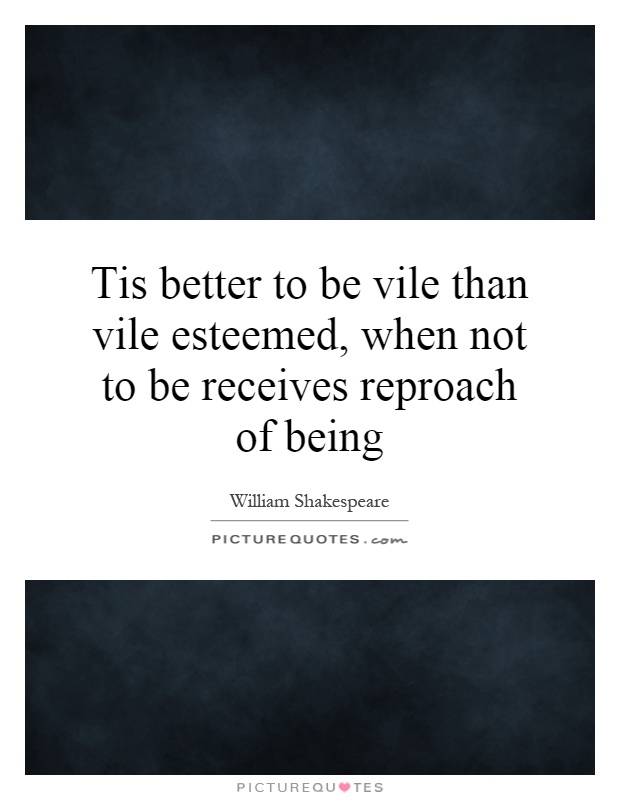Tis better to be vile than vile esteemed, when not to be receives reproach of being

Tis better to be vile than vile esteemed, when not to be receives reproach of being
The quote “Tis better to be vile than vile esteemed, when not to be receives reproach of being” is from William Shakespeare’s play “Measure for Measure”. In this play, the character Angelo speaks these words as he grapples with his own internal conflict and moral dilemma.Angelo is a strict and moralistic deputy who is put in charge of enforcing the laws of Vienna. However, when faced with the temptation of power and desire, he succumbs to his own vices and becomes corrupt. He propositions Isabella, a novice nun, in exchange for saving her brother’s life. This act of hypocrisy and betrayal goes against everything Angelo claims to stand for, and he struggles with the guilt and shame of his actions.
The quote reflects Angelo’s inner turmoil and the conflict between his public image and his private desires. He believes that it is better to be truly vile and embrace his own wickedness, rather than pretending to be virtuous and facing the shame and condemnation of being exposed as a hypocrite. In other words, it is better to be true to oneself, even if it means being seen as vile by others, than to live a lie and face the consequences of being found out.
Shakespeare often explores themes of morality, power, and deception in his plays, and “Measure for Measure” is no exception. The quote highlights the complexity of human nature and the struggle between our public personas and our private desires. It challenges the audience to consider the consequences of living a life of deceit and the importance of being true to oneself, even if it means facing the judgment of others.












 Friendship Quotes
Friendship Quotes Love Quotes
Love Quotes Life Quotes
Life Quotes Funny Quotes
Funny Quotes Motivational Quotes
Motivational Quotes Inspirational Quotes
Inspirational Quotes